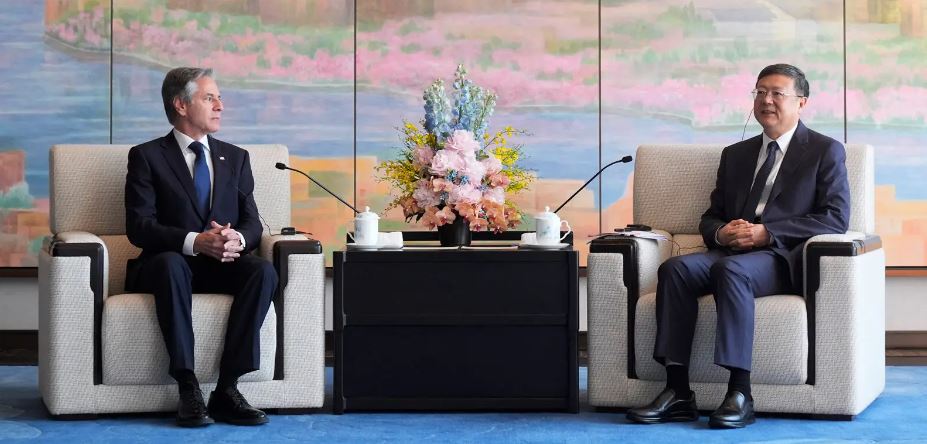Secretary of State Antony J. Blinken’s recent visit to China was marked by a mix of diplomatic gestures and economic tensions, underscoring the complexities of the relationship between the two global powers. While Blinken engaged in friendly activities like attending a basketball game in Shanghai and interacting with students at New York University’s Shanghai campus, underlying concerns over economic ties loomed large.
The Biden administration has been taking steps to restrict China’s access to the U.S. economy and technology, citing concerns over national security and unfair trade practices. Measures such as raising tariffs on Chinese steel and solar panels and considering further restrictions on semiconductor exports aim to protect American industries from cheap imports and prevent Beijing from advancing in critical technological areas like artificial intelligence.
One significant move during Blinken’s visit was Congress passing legislation requiring ByteDance, the Chinese owner of TikTok, to divest its stake in the app within a specified timeframe or leave the United States altogether. While signed into law by President Biden, the measure is expected to face legal challenges.
Despite these economic measures, Blinken’s visit maintained a cordial tone, with efforts to emphasize the importance of direct engagement and cooperation between the U.S. and China. Blinken highlighted the value of educational exchanges and cultural ties in fostering a more constructive relationship between the two countries.
Since President Biden’s meeting with Chinese leader Xi Jinping in November, efforts have been made to stabilize U.S.-China relations, albeit against a backdrop of growing economic friction. While the relationship appears more stable compared to the tumultuous trade disputes under the previous administration, both sides are advancing agendas that reflect their respective national interests.
The Biden administration’s focus on restricting China’s access to advanced technology, particularly semiconductor technology, has become a central point of contention. Export controls and sanctions are being employed to prevent Beijing from gaining a strategic advantage in critical areas like AI and semiconductor manufacturing.
However, Chinese leaders have signaled a commitment to prioritizing national security concerns over business interests, raising tensions over economic measures. President Xi Jinping has emphasized China’s self-sufficiency and its determination to safeguard its technological development from external interference.
The economic measures being pursued by both countries reflect broader shifts in their industrial policies. China’s pivot towards self-sufficiency and efforts to challenge U.S. dominance in high-tech industries align with President Xi’s vision for China’s future. Meanwhile, the U.S. government’s actions are driven by concerns over China’s authoritarian governance and its impact on global economic dynamics.
Despite the tensions, trade and economic ties between the U.S. and China remain significant. American exports to China support millions of jobs, highlighting the interconnectedness of the two economies. However, the evolving nature of the relationship and ongoing economic disputes underscore the need for careful navigation and strategic diplomacy.
Blinken’s visit to China served as a reminder of the complex interplay between economic interests and diplomatic relations, highlighting the challenges and opportunities inherent in the U.S.-China relationship. As both countries navigate their respective paths, the need for dialogue and cooperation remains essential in addressing shared challenges and fostering mutual understanding.

